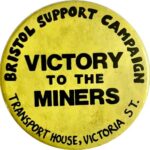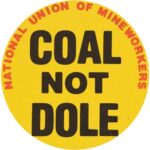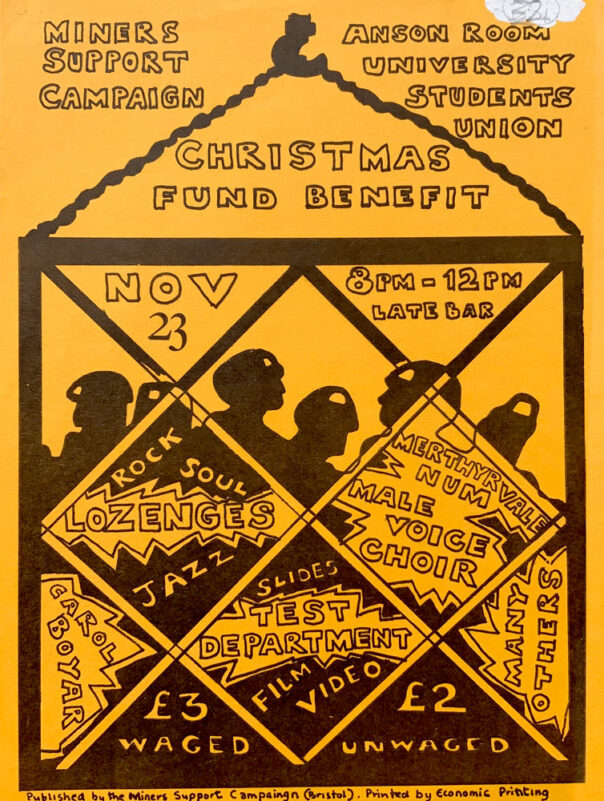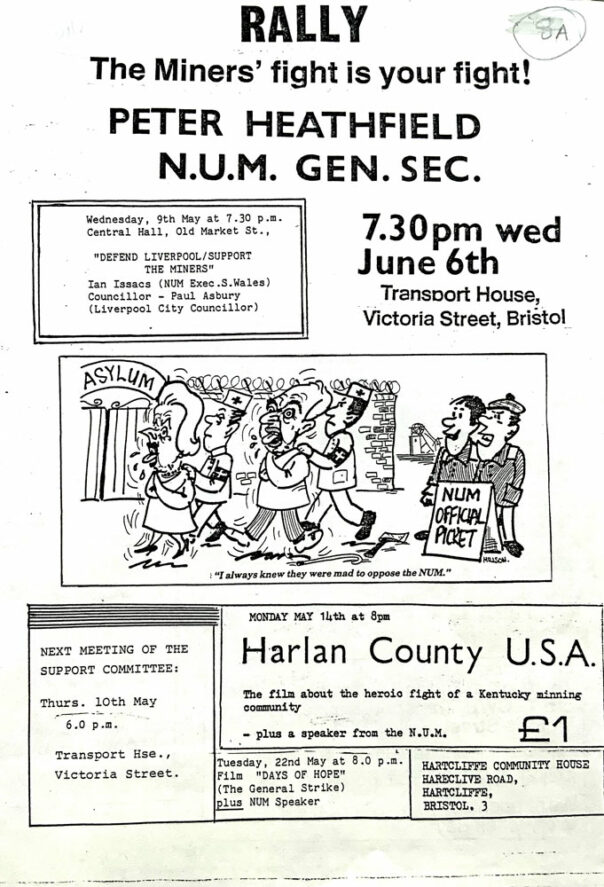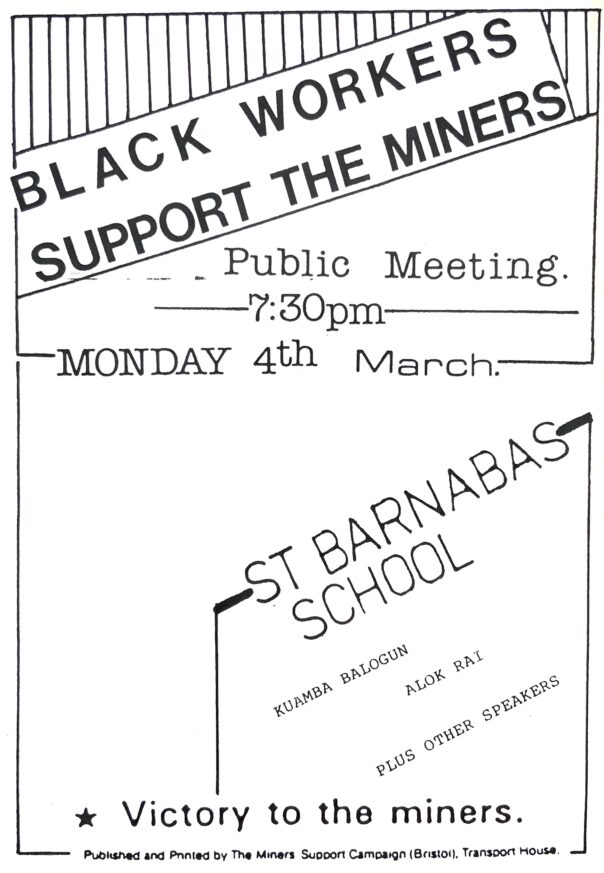Looking back to the Miners’ Strike and the Bristol Miners Support Group
In March 1984 the publicly owned National Coal Board provoked Britain’s miners into a year-long strike by announcing the closure of twenty of Britain’s 173 coal mines. The strike was defeated and within 20 years Britain’s last deep coal mine had closed. 200,000 jobs were lost and hundreds of working-class communities were laid waste. Looking back 40 years later, it is easy to think that, despite the high price paid by the miners and mining communities, the climate crisis demanded an end to coal fired power stations and their carbon emissions. Was it that simple?
The Tory plan
40 years ago, the Tories had a plan for Britain. The heart of the plan was de-industrialisation and the creation of a low-skill, low-wage economy of insecure work. Capital was fleeing to more lucrative locations. Coal was at the heart of Britain’s industrial economy, so there was no place for it in the Tory plan. North Sea oil and gas offered the Tories a chance to put the plan into action. The only obstacle was the National Union of Mineworkers (NUM), the best organised and most effective trade union in Britain. If the miners could be beaten, the coal industry would be finished. But more importantly, the Tories’ plans for the rest of the economy would be easier to implement. The closure of the coal industry was not motivated by climate concerns. It was part of the plan to turn Britain into a de-industrialised, privatised, low-wage economy. The defeat of the NUM would provide the added bonus of demonstrating to all trade unions and anybody else that resistance was futile.
This Tory plan for Britain was well understood by most miners, and by many others. A few weeks after the announcement of the pit closures, the majority of Britain’s miners were on strike. The strike lasted exactly one year and was one of the longest and most bitter disputes in British labour history. The Tories used the full force of the police, the army and the law to brutalise striking miners and their communities. Where these didn’t break the strike, starvation tactics and propaganda were used.
The strike was sustained for so long because of the miners’ resolve and the solidarity of their families and communities. This was supplemented by a network of miners’ support groups across the country, including Bristol.
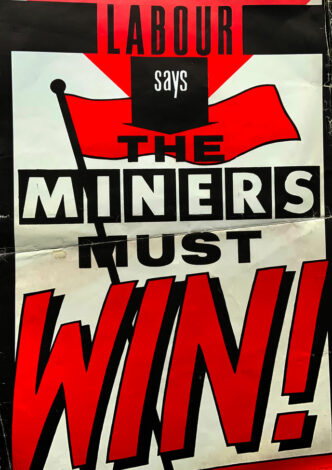
When the 1984 miners’ strike came to Bristol
The Bristol Miners Support Group was set up by the Bristol District Labour Party and the Bristol Trades Union Council in April 1984, Working out of an office in Transport House (now Tony Benn House) in Victoria Street, a group of local volunteers worked with three South Wales miners to arrange almost 200 meetings, organise several large marches and rallies, and raise around £1 million at today’s prices to support Welsh miners and their families.
The impact
The impact of the strike on British politics was profound and its effects are still felt today. Much of this was negative. However, the energy of the strike also fed positively into other campaigns, notably the Anti-Poll Tax campaign of the late 1980s/early 90s which succeeded in defeating the tax and which also led to the toppling of Margaret Thatcher. The other point worth noting is that while renewable energy sources have increased in size, domestically produced coal has been replaced by imported coal, gas, oil, nuclear power and incinerator sources, all of which bear significant environmental costs. The transition from coal to other energy sources was, and still is, profoundly unjust for miners and their communities. The financial, social and environmental costs have also been enormous.
40 years on from the miners’ strike, there have been many events to mark its significance and to remind the labour movement of the importance of solidarity in the long fight for social and economic justice. The Bristol Radical History Group are collecting documents and other materials relating to the Bristol Miners Support Campaign.
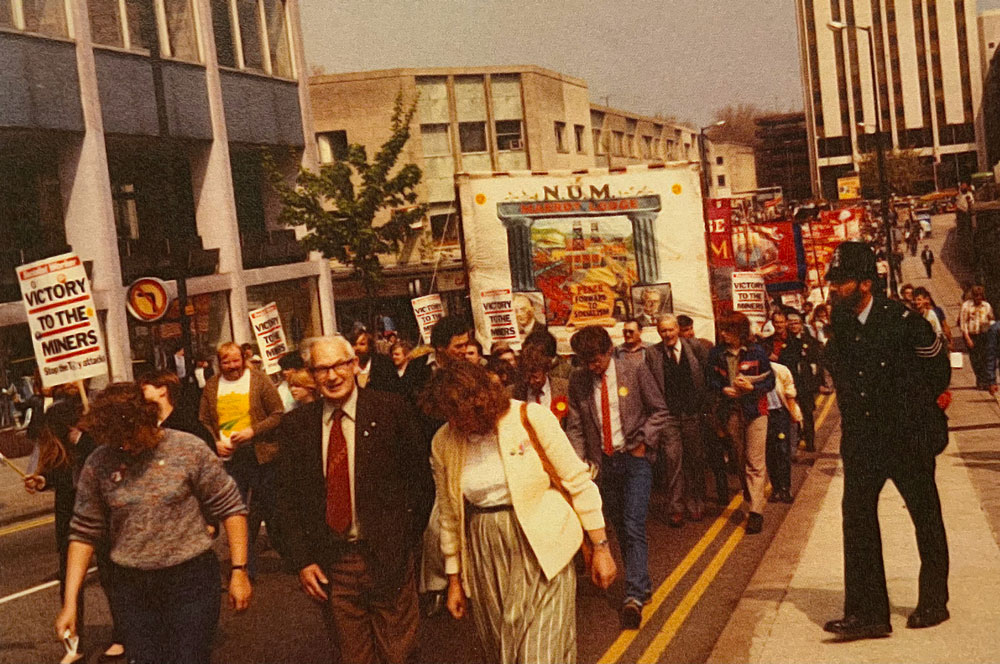
The Appeal
We are now appealing to you for any contributions you can add to this collection, which will be deposited in Bristol Archives in B Bond Warehouse (Create Centre). It will be open to the public and to future historians.
Please turn out your drawers and cupboards for anything you might still have, or that has come to you from older members of your family. If you find anything that you would like to add to the Bristol Miners Support Campaign Archive please get in contact.





